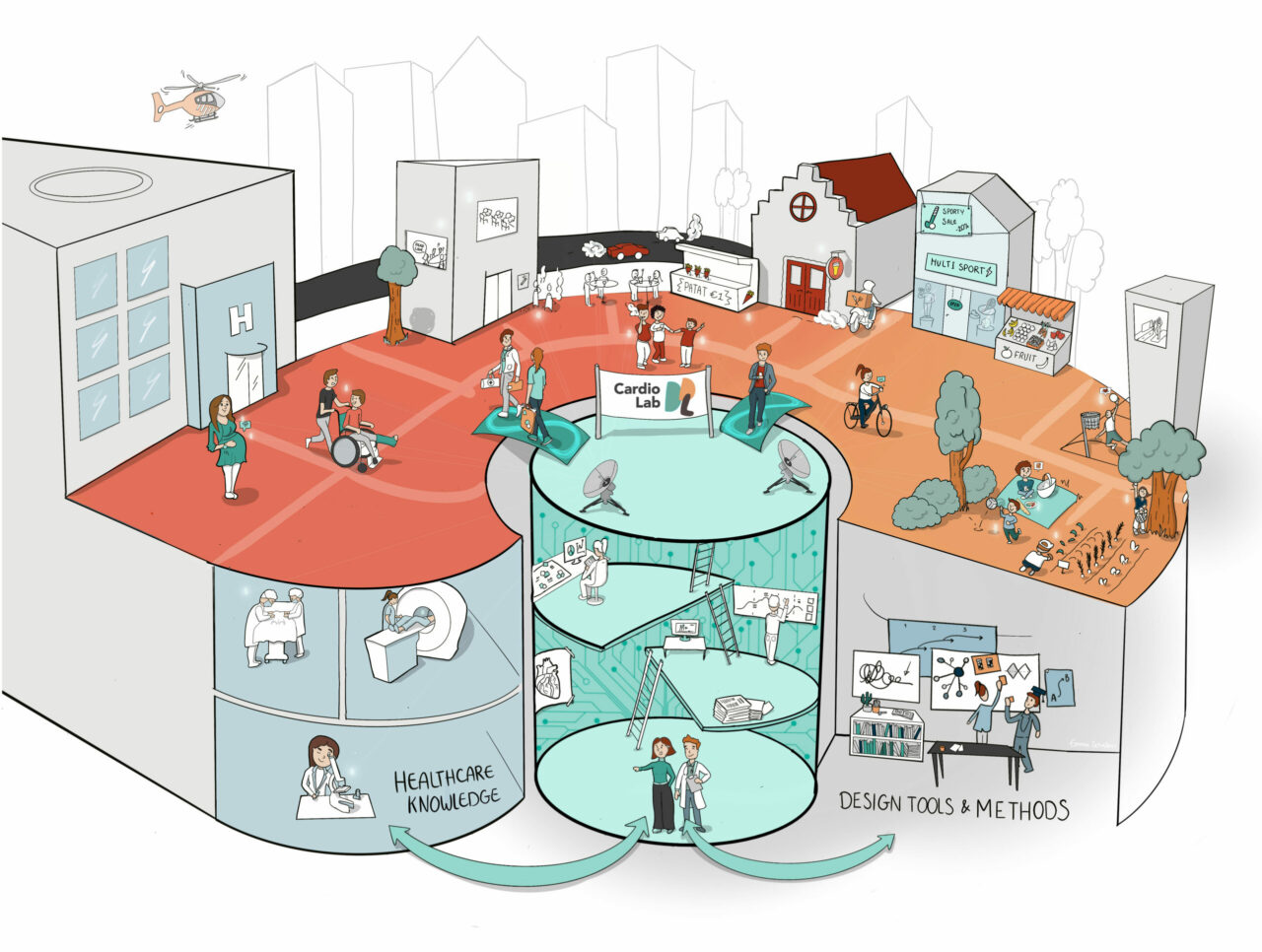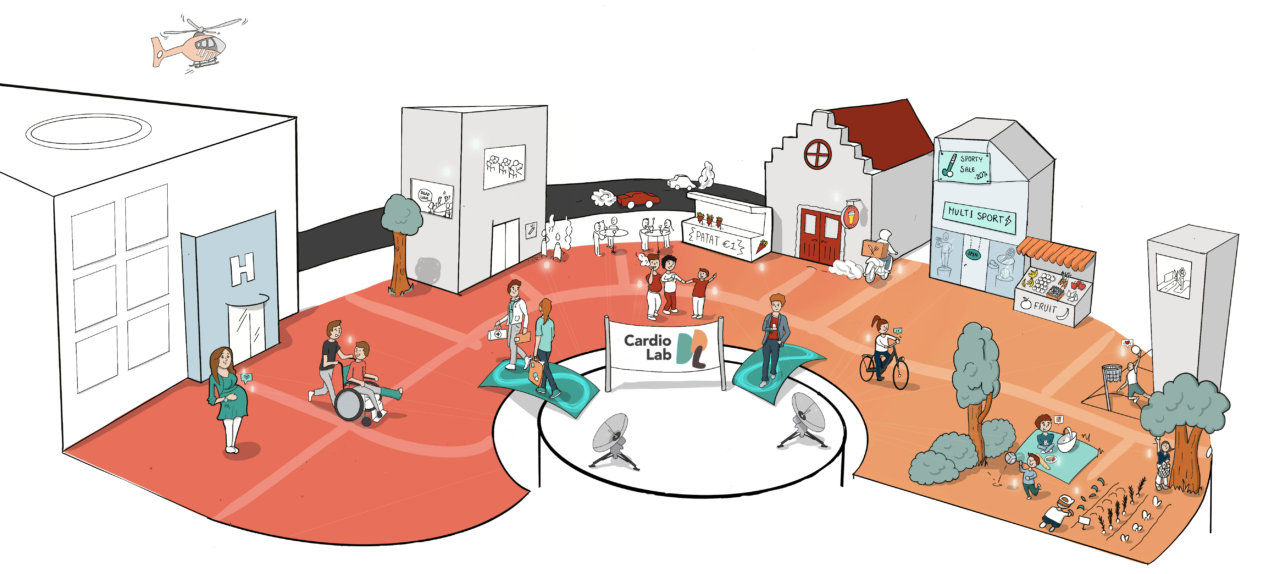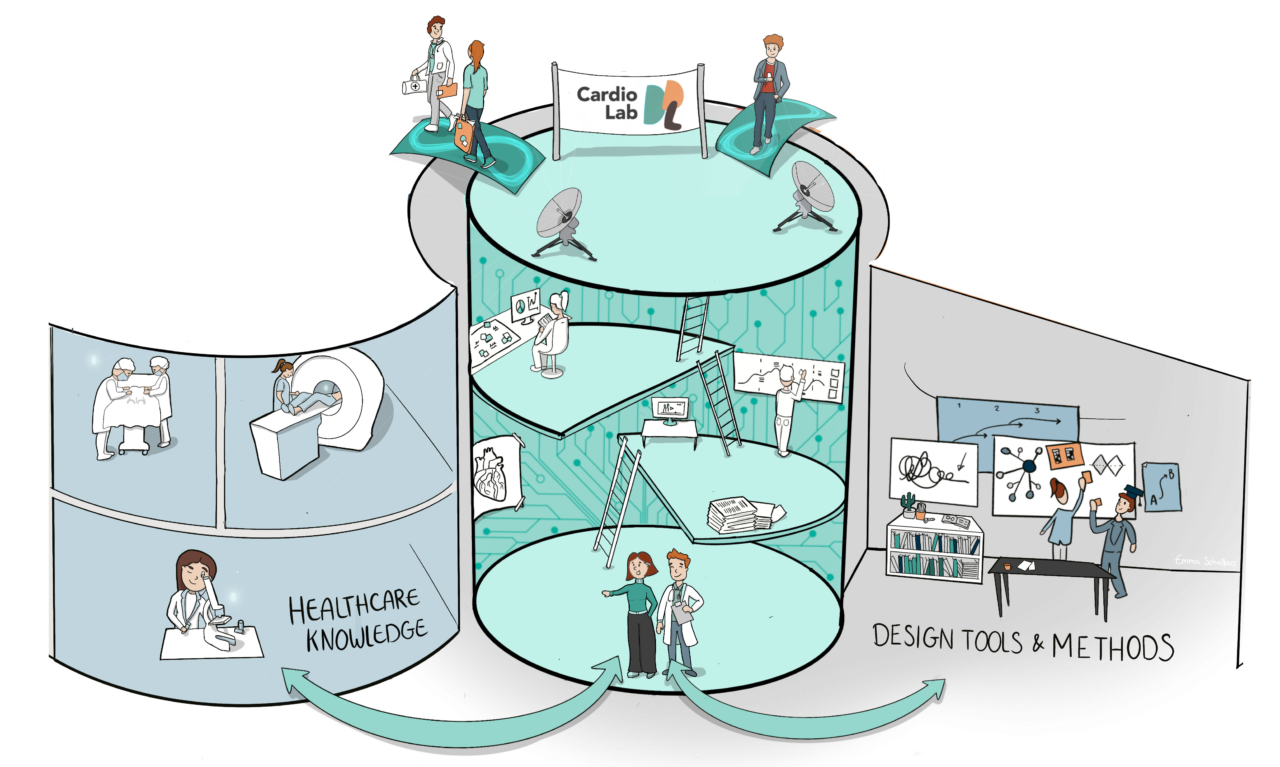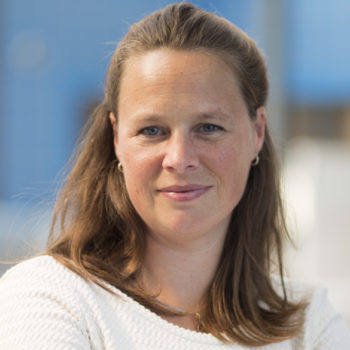About
Philips Design and TU Delft faculty of Industrial Design Engineering (IDE) joined forces in research and design aiming to prevent high-risk groups of people from becoming cardiac patients and to provide cardiac patients with longer and healthier life.

CardioLab is the name we give to the programme of strategic design research and innovation projects. The programme covers the health continuum, from their pre-event (a mix of unhealthy living and genetic predisposition) through an acute event, diagnosis, treatment and post-discharge experience. This will include an understanding of the patients’ lifestyle, regarding behaviours, activities, values, attitudes, beliefs, thoughts and feelings, relationships, tensions and encounters with professionals. In addition to the patient/user perspective, CardioLab aims to deliver insights from the perspective of professionals and non-professionals (friends, families, colleagues, etc.) related to patients, focusing on the social dynamic around professional and nonprofessional knowledge, policies, and practices. The research needed to create these insights will be executed by IDE master students in close collaboration with members of the consortium.

Collaboration is intended to extend beyond student and subsidy projects. We foresee opportunities to invite researchers from all three parties as participants into co-design activities such as information-sharing and co-creation workshops and prototyping workshops. Within the scope of the collaboration, we include other internal parties such as marketing or technology research partners from Philips. Also, we extend the invitation to other stakeholders, such as patients and their relations, care professionals and others into such workshops, and into new and ongoing research.

Within CardioLab, Philips Design and the IDE faculty of TU Delft will also execute scientific research projects. The scientific aim of the Cardiolab is to develop new knowledge on design-driven digital innovation, especially on what this implies for design thinking practices, multi-party collaborations, and data-enabled design. Examples of current research projects that are connected to the programme are an initiative from The Netherlands Organization for Scientific Research (NWO) entitled ‘Embedding Design Thinking within Digital Innovation’, and an NWO project entitled ‘Initiating Multi-Party Collaborations’. In the near future, we will start a new PhD project in the lab on data enabled design, as Cardiolab is also expected to support in the development of new data design capabilities, processes, methods and tools.
